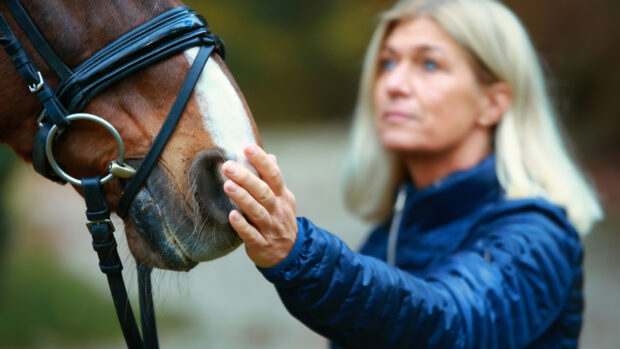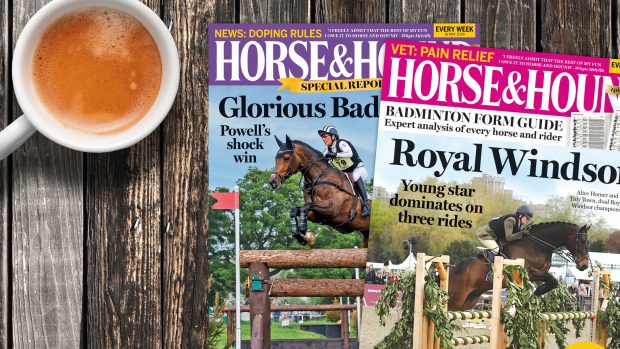Promotional Feature with Dengie
There are a range of reasons why your horse or pony might need a forage replacer.
If you’re dealing with any of the following, then a forage replacer is the answer:
- Forage shortage – Hot, dry summers can reduce forage yields. If your supply is reduced, topping up throughout the winter is the best approach to avoid running out and having to make a more drastic change to your horse’s diet.
- Forage that’s too good or not good enough – Bright, sunny conditions could lead to sugar levels in some forages being higher than usual, which may be too much for those with EMS (Equine Metabolic Syndrome), PPID (Pituitary Pars Intermedia Dysfunction) or that are prone to laminitis. Using a low sugar forage replacer, such as Dengie Hi-Fi Lite can help you manage your horse’s sugar intake. Equally, if your forage isn’t that great for whatever reason, topping up with a more nutritious forage replacer, such as Dengie Pure Grass, can help to avoid weight loss.
- Does your horse have respiratory issues? – Equine asthma, also referred to as RAO and COPD, means that some horses need a super-clean forage source. Soaking and steaming may not be practical or possible to do in some situations, which is when straw free forage replacers are particularly useful.
- Is your horse struggling to chew hay or haylage? – Poor dentition isn’t just a problem for older horses. Diastemas can affect younger horses and ponies too. If they simply can not manage longer length forages, a short-chopped forage replacer may be suitable or it may even be necessary to use pelleted fibres soaked into a mash.
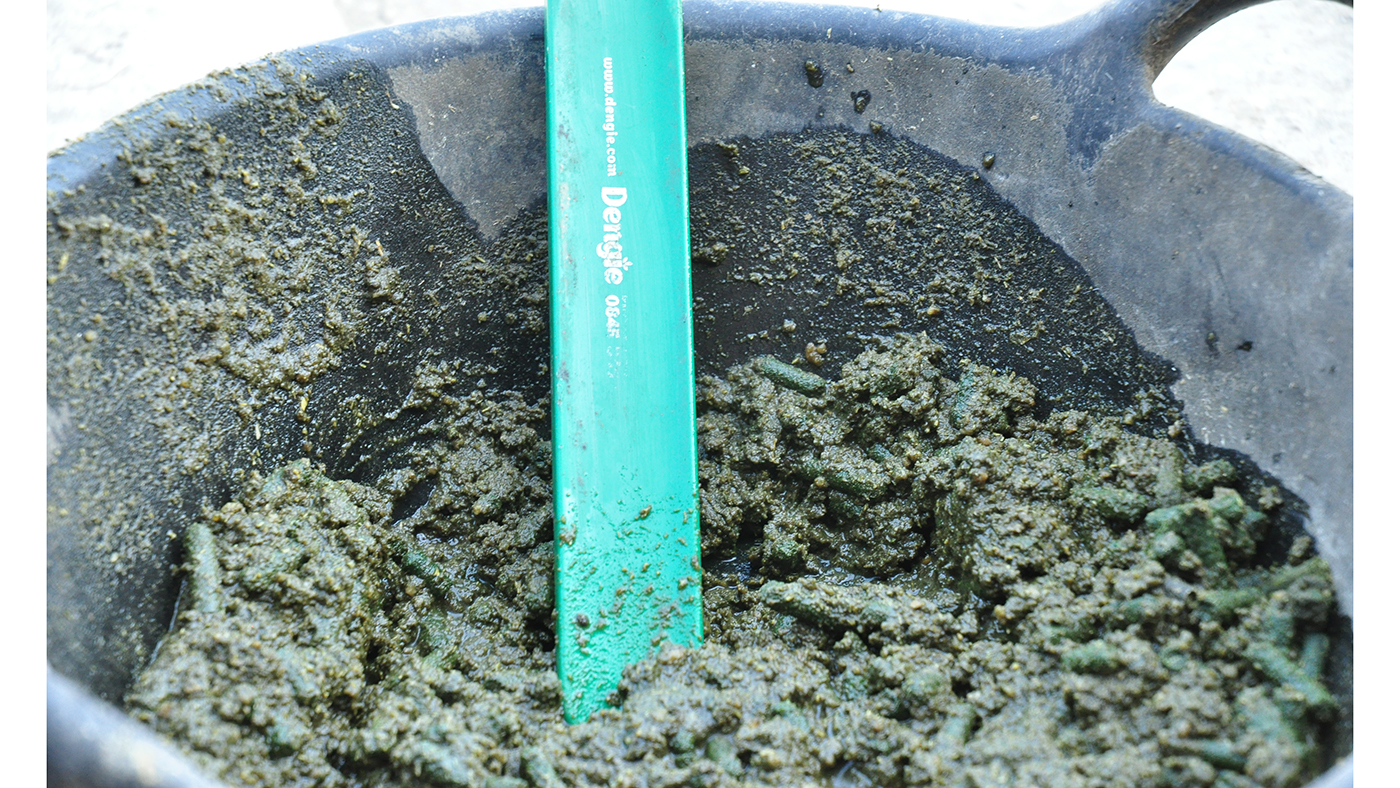
Forage replacers explained
How do I know if my horse is struggling to chew forage?
There are some very obvious signs such as quidding, where balled up pieces of food are dropped out of the horse’s mouth and tend to accumulate around the hay net or feeder. However, there are some earlier more subtle signs that you may not be aware of. Studies have shown that pieces of fibre greater than 3.6mm in the horse’s droppings are an indicator of dental abnormalities. And for donkeys, the threshold length is slightly shorter at 3.3mm, due to differences in the conformation of their mouths.
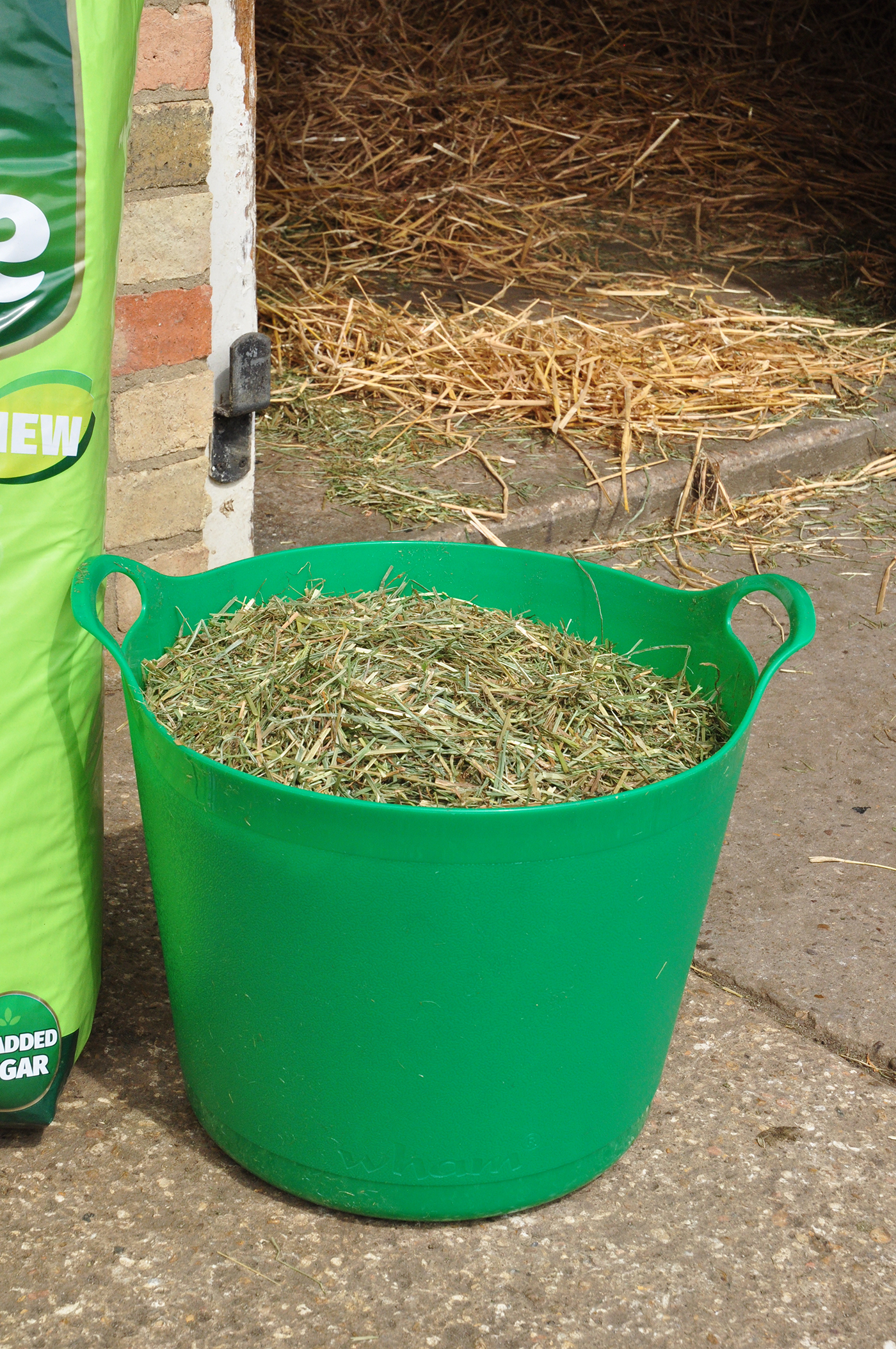
Did you know: the grass and alfalfa in Dengie feeds are precision-dried so they are much cleaner than sun-dried forages such as hay and haylage.
Topping up your horse’s forage supply
Any of the Dengie chopped fibre feeds count towards your horse’s forage intake. In addition, you can give your horse a trug or bucket of Dengie Pure Grass alongside their haynet. One large bucket holds 1–1.5kg so 1.5–2 buckets would replace an average section of hay which weighs around 2kg.
If your horse is a good-doer or you need a lower sugar forage replacer, Dengie Ulser Lite is the ideal option. Combining oat straw with grass helps to bring the sugar and energy levels right down. This makes it ideal for helping to ensure sufficient fibre is fed to maintain digestive health without too many calories to try and avoid excessive weight gain.
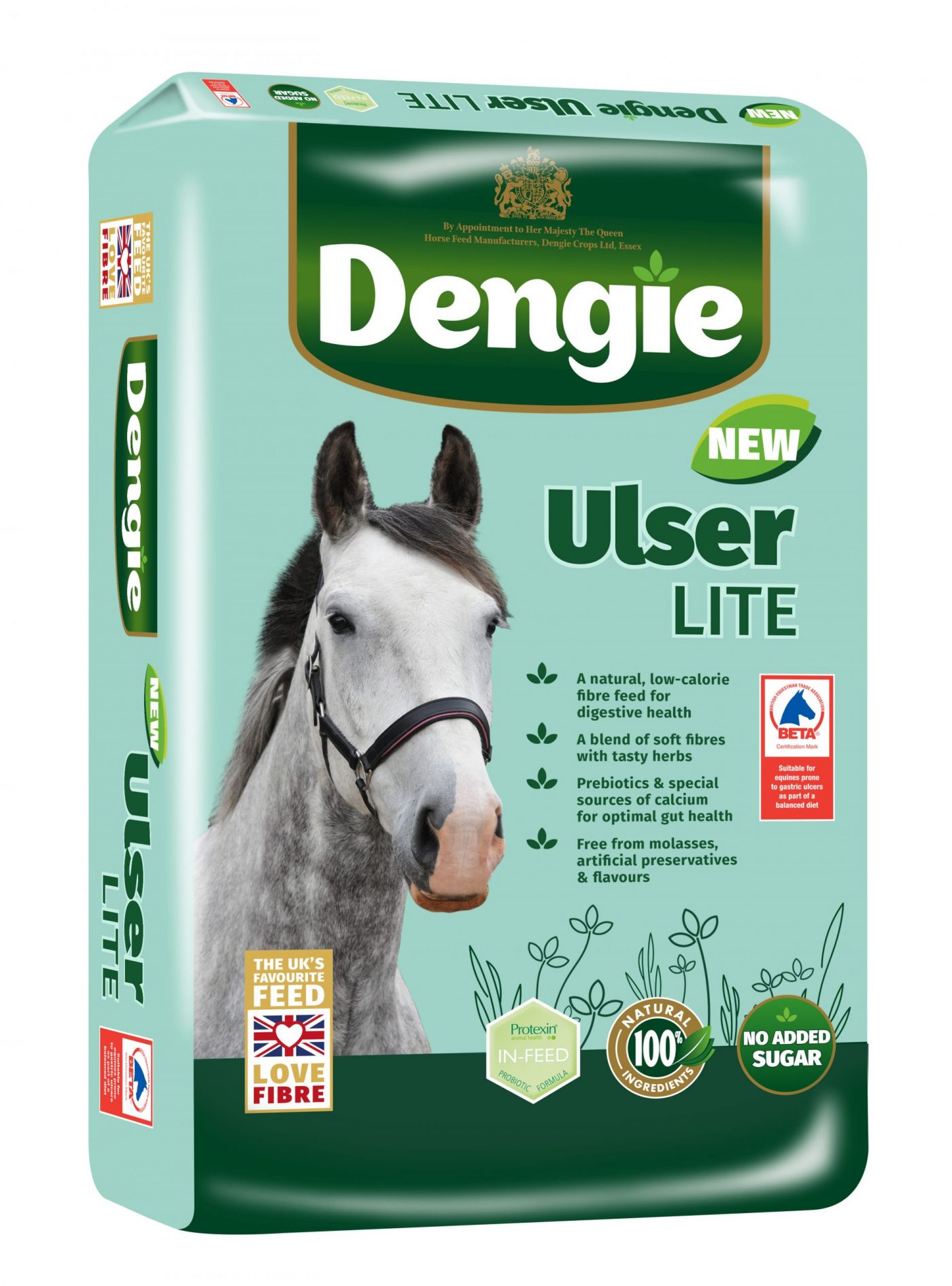
Top tip: feeding more of a lower calorie forage is preferable to feeding reduced amounts of a higher calorie forage.
Want to know how good your forage is?
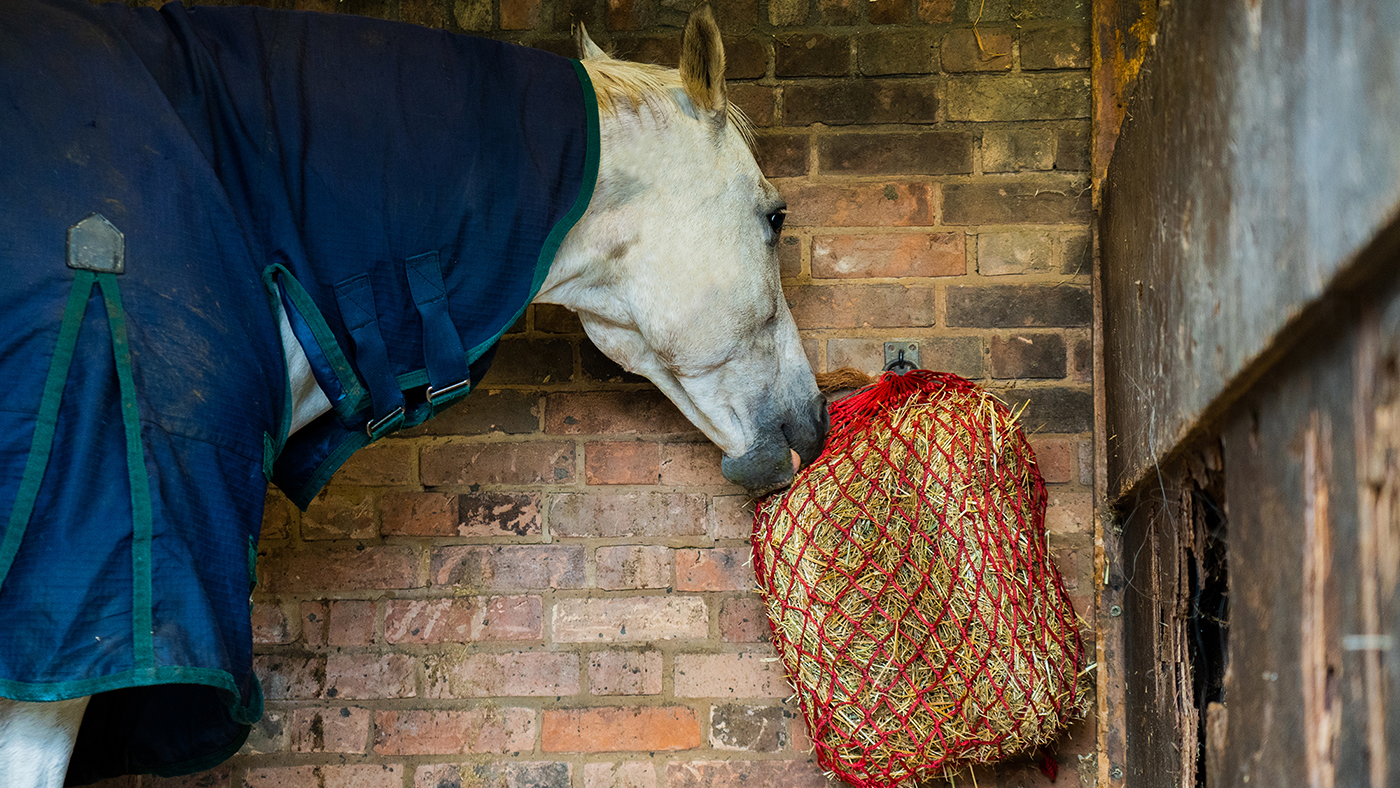
The only way to know what your forage is contributing to your horse’s requirements is to carry out a nutritional analysis. It is possible to carry out tests on your haylage and hay, before and after soaking, if you are concerned about sugar levels – click here to find out more.
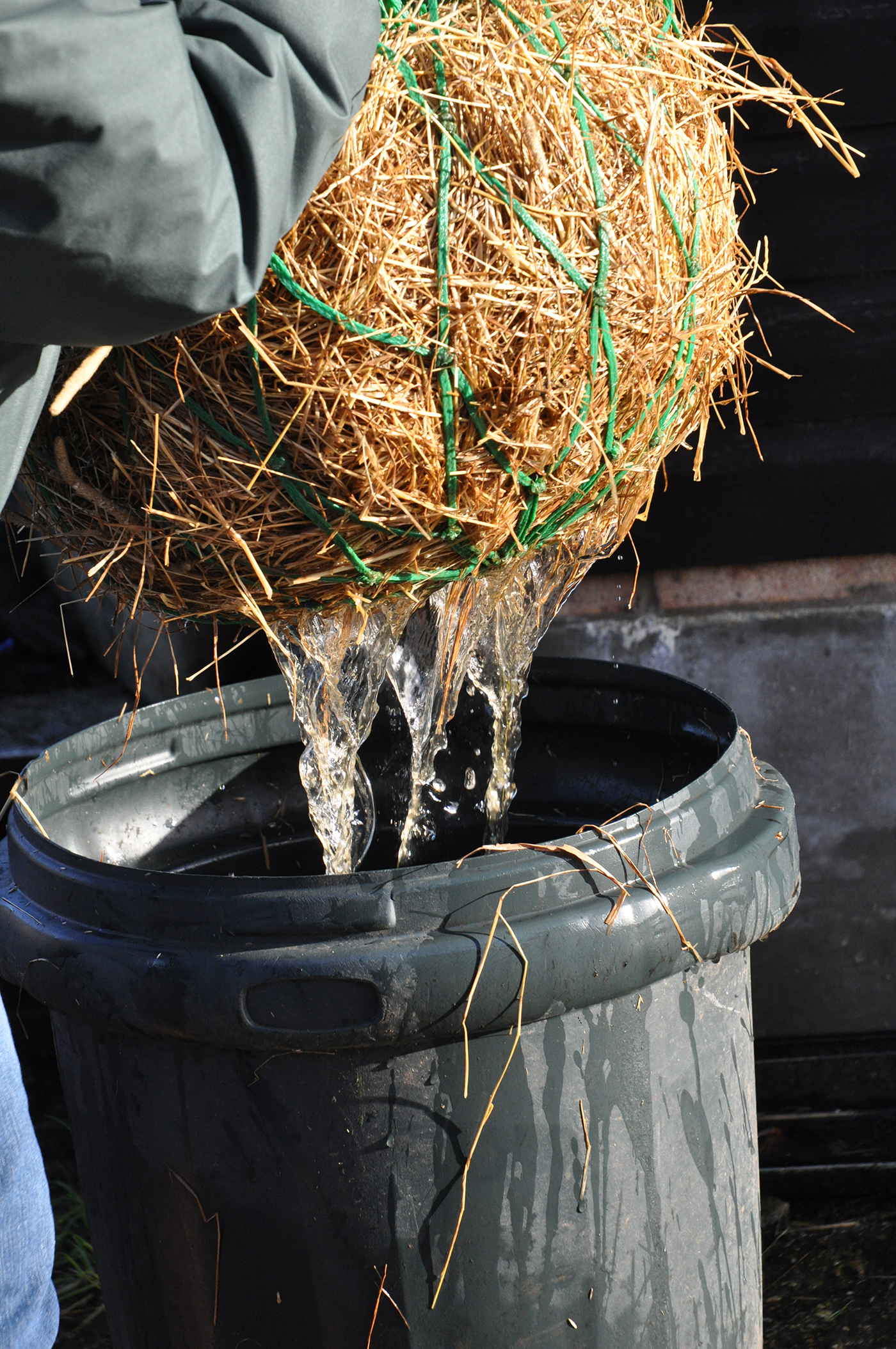
Which forage replacer for my veteran?
Did you know the phrase ‘long in the tooth’ actually originates from horses? This is because their teeth continue to grow throughout their lifetime; their gums recede as they get older which gives them the appearance of longer teeth. This needs to happen because chewing fibre causes a lot of wear on teeth and horses should spend a long time eating – 16-18 hours every day. If the teeth didn’t keep growing, horses would probably ‘run out’ of tooth as soon as their early teens. With horses living longer than ever, their teeth can start to let them down, by becoming loose and wobbly, or even falling out.
If your older horse or pony can still manage short, chopped fibre then choosing the right one comes down to their weight and condition. Dengie Hi-Fi Senior combines dried grass and alfalfa and is ideal for those that don’t tend to hold their weight and condition well. If the short chop format is still too much then Dengie Alfa-Beet and Dengie Grass Pellets can be soaked into a mash for a really easy-to-chew option.
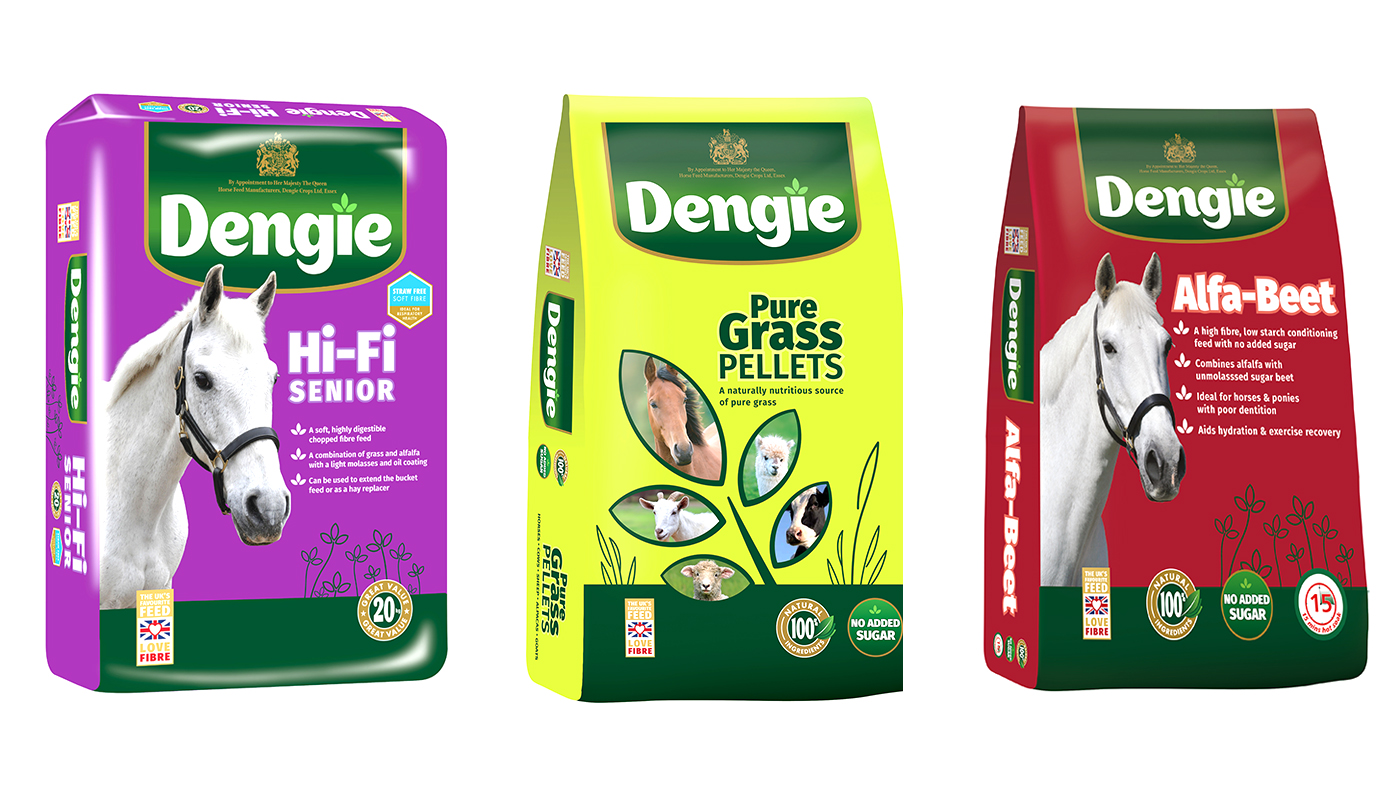
Top tip: the autumnal change from less grazing to more hay, which is much drier, can increase the risk of colic. Try to make a gradual change and include a soaked fibre mash to help ease the transition in moisture intake.
Case study
Kizzy
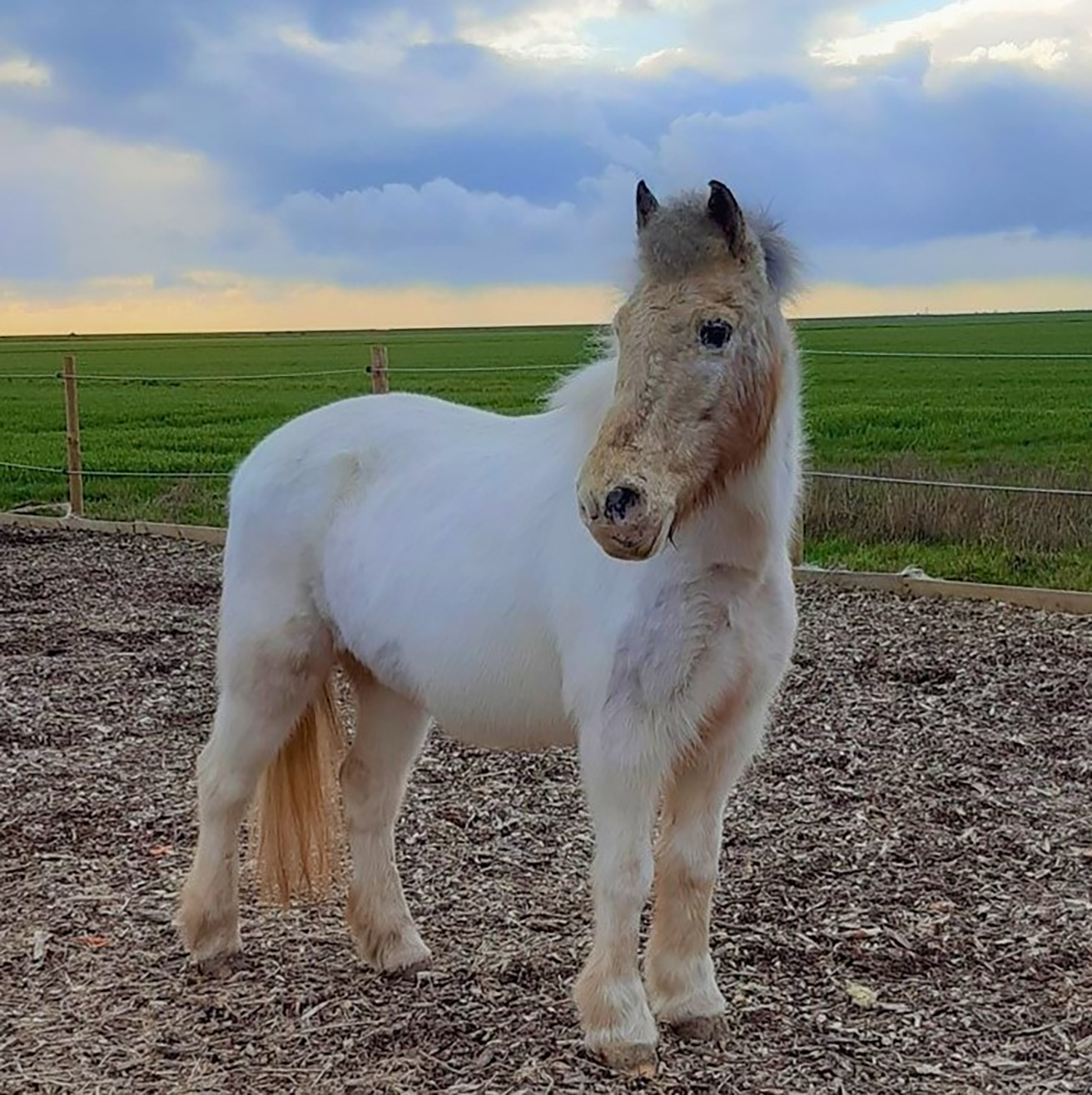
Kizzy is a 31-year-old ex-riding school pony with a number of health conditions including PPID and EMS, plus diastemas. Kizzy’s owner, Tracey, works hard to manage her various conditions and it can be difficult when dealing with more than one issue at once. For the past couple of years Kizzy has remained a healthy weight: 260kg. She is turned out during the day in a woodchip paddock with various buckets of soaked hay to encourage her to move about and forage. In her bucket feed she receives Dengie Alfa-Beet with Performance Vits & Mins alongside to provide a balanced diet.
Poo
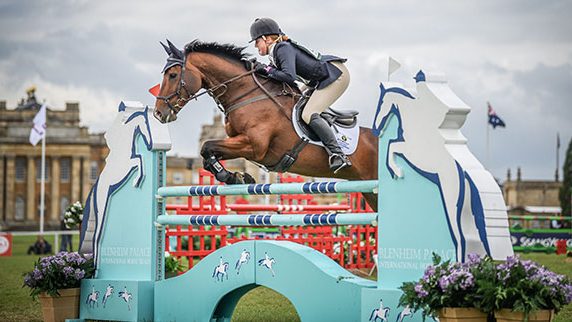
Poo, aka Perfect Timing II, is a four-star eventer owned and competed by Alicia Wilkinson. She lost a lot of weight and was diagnosed with diastemas that reduced her ability to chew hay. Dental treatment and a change of forage was required to ensure that she received sufficient fibre. Poo is now able to manage a small amount of steamed hay, alongside her soaked mash of Dengie Grass Pellets and Dengie Alfa-Beet.
For further support on feeding a forage replacer and for any other feeding queries speak to a nutritionist on 01621 841188 or for a personalised diet plan complete our feed advice form.



